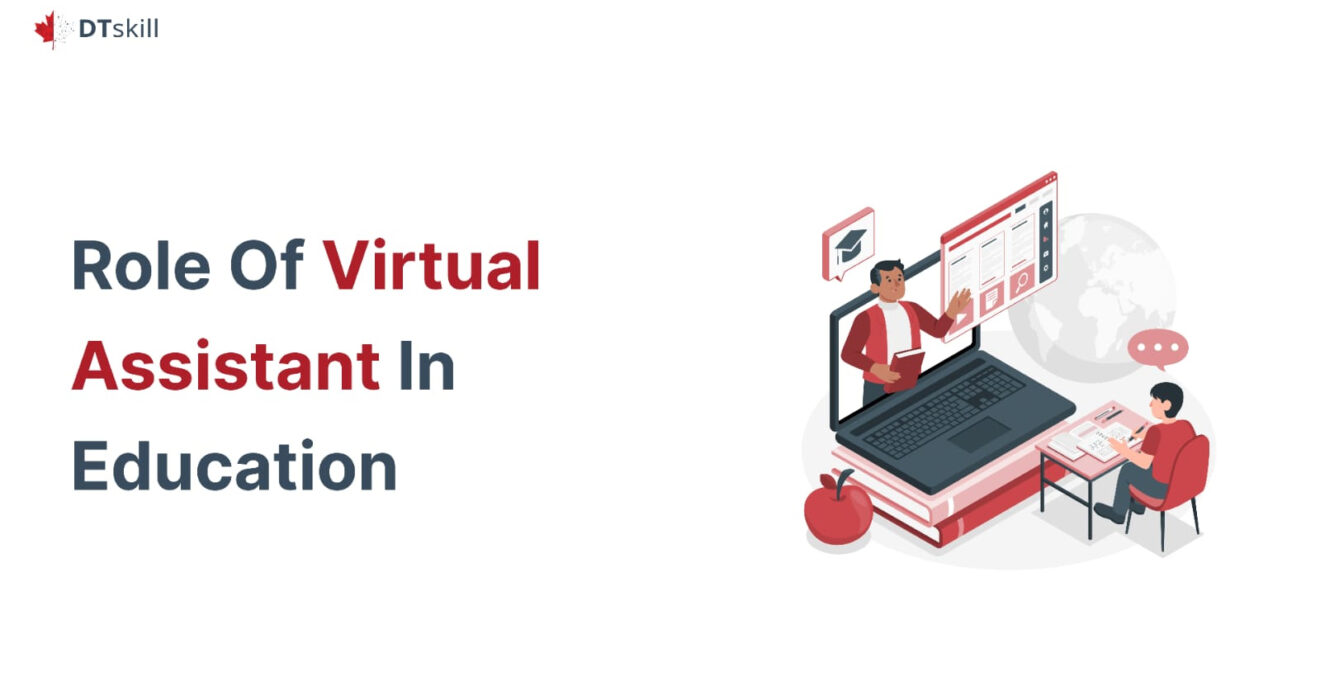In a recent study, it was found that nearly 90% of educators believe AI-driven tools could significantly reduce their workload, allowing for more personalized learning experiences.
Additionally, over 75% of students reported that virtual assistants have improved their access to learning resources, regardless of their learning abilities or locations.
Virtual assistants in education are making this a reality today. As AI-driven tools reshape industries, education is undergoing a profound transformation.
How can these intelligent systems enhance learning experiences and streamline the administrative load in education?
In this blog, we’ll explore how virtual educational assistants reshape the learning landscape.
What Are Virtual Assistants in Education?
Virtual educational assistants are AI-driven tools that support students, educators, and administrators. Leveraging natural language processing (NLP) and machine learning, these assistants can autonomously handle tasks such as answering queries, scheduling, and even providing real-time tutoring.
While virtual assistants are well-known in personal settings, their growing role in the education sector holds transformative potential.
| According to a recent report, 47% of educators believe AI tools, including virtual assistants, will become central to student success by 2030. |
Streamlining Administrative Tasks
Educational institutions, from schools to universities, deal with a massive array of administrative duties daily. Managing student records, scheduling classes, sending reminders, and handling inquiries can become overwhelming. Virtual assistants help by automating these routine tasks, reducing the burden on staff.
For example, a virtual assistant can:
- Schedule appointments and classes for teachers and students.
- Send automated reminders for exams, assignments, and meetings.
- Answer frequently asked questions from students about admissions, deadlines, and coursework.
By offloading these tasks to AI-powered assistants, educators can focus more on teaching and less on time-consuming admin work, thereby improving efficiency.
Personalized Learning with AI Virtual Assistants
One of the most exciting applications of virtual assistants is their ability to support personalized learning. Using data-driven insights, these tools can track a student’s progress, understand their learning patterns, and tailor educational content accordingly.
Imagine a virtual tutor that:
- Adapts learning materials to suit the pace and needs of individual students.
- Provides instant feedback during online quizzes or exercises.
- Recommends additional resources or explanations when a student is struggling.
This level of personalization ensures that students have a more engaging and supportive learning environment, helping them succeed at their own pace.
Improving Accessibility and Inclusivity
Virtual assistants have the potential to revolutionize how students with disabilities or learning challenges access educational content. Features like text-to-speech, voice commands, and language translation make education more accessible for all.
Some examples of how these tools improve inclusivity:
- Students with visual impairments can use voice commands to navigate course materials.
- Multilingual students can access real-time language translation, ensuring they understand the content in their preferred language.
- Text-to-speech functionalities help students with reading difficulties engage more effectively with their lessons.
These features empower students from diverse backgrounds and abilities, promoting an inclusive and supportive learning environment.
The Balance of Technology and Human Interaction in Education
While virtual assistants offer incredible advantages, they should complement rather than replace human interaction in education. Human educators play a crucial role in fostering critical thinking, empathy, and mentorship qualities that AI tools cannot fully replicate.
Striking the right balance between technology and personal interaction ensures that students receive both efficient technological support and essential human guidance. Virtual assistants can handle repetitive tasks and provide on-demand learning assistance, but teachers remain central to building relationships and offering personalized mentorship.
The Future of Education with DTskill Virtual Assistants
As AI and virtual assistant technologies continue to evolve, their role in education will only expand. DTskill Virtual Assistants are at the forefront of this transformation, offering innovative solutions that blend learning, accessibility, and administrative efficiency. From virtual classrooms to AI-powered tutoring systems, DTskill’s vision is to empower educators and students to make learning more engaging and adaptable to individual needs.
Conclusion
Virtual assistants are transforming the education sector by automating administrative tasks, enabling personalized learning, and enhancing accessibility for all students. While challenges such as data privacy and maintaining human interaction remain, the benefits far outweigh the potential drawbacks. As the future of education unfolds, virtual assistants will undoubtedly be an integral part of this evolution.
Explore how DTskill Virtual Assistants can enhance your educational environment today! Learn More at www.dtskill. com
FAQ
- What is a virtual assistant in education?
Virtual assistants in education are AI tools that automate administrative tasks and provide personalized learning experiences to students. - How can virtual assistants personalize learning?
Virtual assistants analyze individual learning patterns and tailor educational content, allowing students to learn at their own pace. - Can virtual assistants help students with disabilities?
Yes, features like text-to-speech, language translation, and voice commands help make educational content accessible to students with diverse needs. - Do virtual assistants replace teachers?
No, virtual assistants complement human educators by automating repetitive tasks and providing on-demand assistance, while teachers focus on mentorship and critical thinking development. - What are the privacy concerns with virtual assistants in education?
Protecting student data is essential. Institutions must ensure compliance with data protection regulations and implement robust security measures.
He is the Founder and CEO of DTskill AI, He is a world-class consultant specializing in AI solutions. With a keen focus on assembling diverse teams adept in AI research, data science, industrial domain knowledge, software engineering, and business intelligence, He leads initiatives that drive innovation and excellence in the field.

